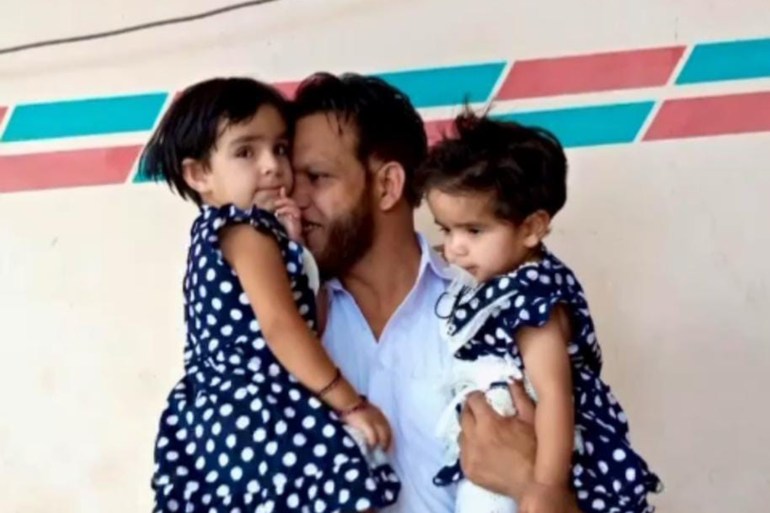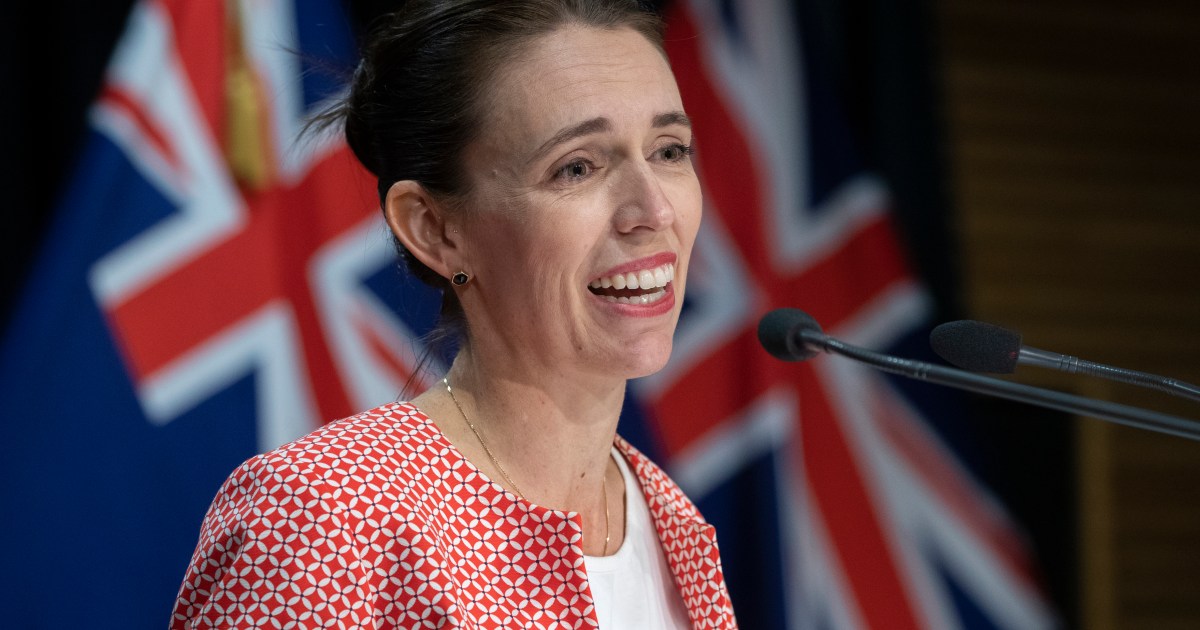Greece boat wreck victims asked for prayers before leaving Libya | Migration
Naeem Afridi last spoke to his brother, Hameedullah, on June 12 as he was travelling on a boat from Libya headed to Europe.
“Hameedullah told me ‘Don’t worry. I’m just eight or nine hours away from Europe’,” Naeem told Al Jazeera. “And he told me that when he arrived he would contact me.”
When Naeem read the news about the shipwreck off Greece’s Pylos, “I felt like my soul was going away”, he said.
He spent days trying to find information about his brother’s whereabouts.
He has received no official confirmation, but believes that Hameedullah and his three-year-old son Afaq Ahmed are among hundreds feared dead.
Naeem said Hameedullah left Pakistan with Afaq, hoping of building a safer, more stable future.
His wife had been killed a year earlier, and he feared for his son’s life.
“In Pakistan, you have to leave the country for so many reasons. There is no rule of law,” said Naeem.
The brothers had discussed many options, but felt that a boat to Europe was the only option.
“I have read that 385 people from Pakistan died,” said Naeem. “But it’s not just that 385 people died, it’s 385 families that are completely devastated and hopeless.”
The trawler that sank off the coast of Pylos was carrying up to 750 people travelling from Libya towards Italy.
Most on board were from Pakistan. Dozens hailed from Syria, Egypt and Palestine.
Pakistan’s interior minister has said about 350 Pakistanis were on board. The Greek coastguard has found only 104 survivors and confirmed 82 deaths.
More than 10 days later, at least 500 people are still missing, leaving families around the world without answers, reflecting on the last conversations they had with their loved ones.

Saeed Anwer described his older brother Abdul Jabbar as “soft hearted”.
“He was so nice to everyone,” Anwer said over WhatsApp from Pakistan. “Everyone wanted to talk with him.”
Abdul Jabbar and his three cousins – Sajid Yousaf, Awais Asif and Tuqeer Parwez – left their village near Kotli in the Azad Kashmir territory in Pakistan, desperately hoping to provide financial stability.
But their families are now in mourning.
“They left because of poverty, because of the conflict in Kashmir there are no job opportunities,” said their uncle, Ramzan Jarral, over a WhatsApp video call, standing in front of their roofless cinder block house.
He said the family does not have the resources to build a roof.
Abdul Jabbar spoke with his family frequently over WhatsApp as he waited in Libya for a boat to depart.
He told his uncle he was worried about the journey, but maintained a determined optimism.
Anwer said in their last conversation, that Abdul Jabbar asked him to care for his family, especially his two young daughters.
His wife Yasra is pregnant with a third child.
“He said ‘Pray for me that I reach safely my destination’,” said Anwer.
When the family heard the news of the shipwreck, they were stricken with shock. They do not know how they will repay the money the cousins borrowed to pay for the journey. And they feel enormous pain.
“It is very, very difficult for us as a family,” said Jarral.
“Whenever there is a phone ringing, we are thinking that someone may have good news. We are going through this suffering 24 hours a day, seven days a week. This situation I hope no one will face in this entire world.”
‘There is nothing in Kobane. It is a place at war’
Bozan Sikri Usi’s family is grieving, too.
His 18-year-old son Ahmed Bozan Usi is missing, as well as his two relatives Welid Muhammed Kasim and Hemmude Fayzi Seyhi. The family is from Kobane, Syria.
“We never thought of him going to Europe. But the conditions here forced us to do so,” said Usi. “There is nothing in Kobane. It is a place at war. There is no education.”
Usi said he last spoke to his son on June 10.
Ahmed said smugglers pressured him to give $500 more than the $4,000 they had already paid in order to leave Libya.
“I said, ‘Son, let’s give them $500 more and they will take you away’,” said Usi. “I wished him good luck and then we never heard from him again.”
Muhammed Muhammed Kasim’s 14-year-old son Welid Muhammed Kasim was also in the group travelling from Kobane.
His father said he was hoping his son could get a better education in Europe. He is now missing.
Kasim last spoke to his young son on June 9. Kasim said Welid asked for his father’s prayers and they said goodbye.
“We are still crying day and night,” said Kasim. “Our 14-year-old son had seen so many difficulties, endured them all, but he couldn’t reach where he wanted. We don’t know if he is alive or dead. All we want is to get some information. This is what burns our hearts and makes our pain grow.”
Kasim is left with questions.
“We hope they are alive and in hospital. Is there a possibility?” he asked. “Could Italy have helped them, could Italy have taken them?”
Ebdu Seyhi’s two brothers Hemmude Fayzi Seyhi and Ali Seyhi were on board the ship. They were hoping to escape the violence in Kobane, though they knew the journey was dangerous.
“I mean, if you stay, you die, but if you go you also die,” said Seyhi. “You see fleeing as the only chance to continue living.”




